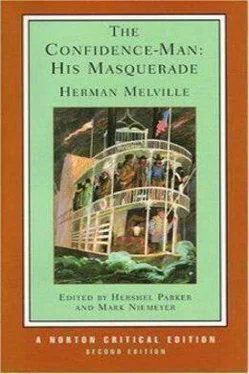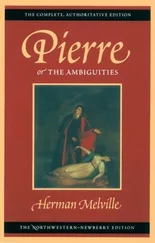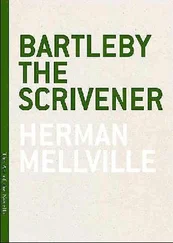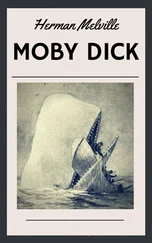With these words and a grand scorn the cosmopolitan turned on his heel, leaving his companion at a loss to determine where exactly the fictitious character had been dropped, and the real one, if any, resumed. If any, because, with pointed meaning, there occurred to him, as he gazed after the cosmopolitan, these familiar lines:
"All the world's a stage,
And all the men and women merely players,
Who have their exits and their entrances,
And one man in his time plays many parts."
Chapter XLII.
Upon the Heel of the Last Scene the Cosmopolitan Enters the Barber's Shop, a Benediction on His Lips.
"Bless you, barber!"
Now, owing to the lateness of the hour, the barber had been all alone until within the ten minutes last passed; when, finding himself rather dullish company to himself, he thought he would have a good time with Souter John and Tam O'Shanter, otherwise called Somnus and Morpheus, two very good fellows, though one was not very bright, and the other an arrant rattlebrain, who, though much listened to by some, no wise man would believe under oath.
In short, with back presented to the glare of his lamps, and so to the door, the honest barber was taking what are called cat–naps, and dreaming in his chair; so that, upon suddenly hearing the benediction above, pronounced in tones not unangelic, starting up, half awake, he stared before him, but saw nothing, for the stranger stood behind. What with cat–naps, dreams, and bewilderments, therefore, the voice seemed a sort of spiritual manifestation to him; so that, for the moment, he stood all agape, eyes fixed, and one arm in the air.
"Why, barber, are you reaching up to catch birds there with salt?"
"Ah!" turning round disenchanted, "it is only a man, then."
" Only a man? As if to be but a man were nothing. But don't be too sure what I am. You call me man , just as the townsfolk called the angels who, in man's form, came to Lot's house; just as the Jew rustics called the devils who, in man's form, haunted the tombs. You can conclude nothing absolute from the human form, barber."
"But I can conclude something from that sort of talk, with that sort of dress," shrewdly thought the barber, eying him with regained self–possession, and not without some latent touch of apprehension at being alone with him. What was passing in his mind seemed divined by the other, who now, more rationally and gravely, and as if he expected it should be attended to, said: "Whatever else you may conclude upon, it is my desire that you conclude to give me a good shave," at the same time loosening his neck–cloth. "Are you competent to a good shave, barber?"
"No broker more so, sir," answered the barber, whom the business–like proposition instinctively made confine to business–ends his views of the visitor.
"Broker? What has a broker to do with lather? A broker I have always understood to be a worthy dealer in certain papers and metals."
"He, he!" taking him now for some dry sort of joker, whose jokes, he being a customer, it might be as well to appreciate, "he, he! You understand well enough, sir. Take this seat, sir," laying his hand on a great stuffed chair, high–backed and high–armed, crimson–covered, and raised on a sort of dais, and which seemed but to lack a canopy and quarterings, to make it in aspect quite a throne, "take this seat, sir."
"Thank you," sitting down; "and now, pray, explain that about the broker. But look, look—what's this?" suddenly rising, and pointing, with his long pipe, towards a gilt notification swinging among colored fly–papers from the ceiling, like a tavern sign, " No Trust? " "No trust means distrust; distrust means no confidence. Barber," turning upon him excitedly, "what fell suspiciousness prompts this scandalous confession? My life!" stamping his foot, "if but to tell a dog that you have no confidence in him be matter for affront to the dog, what an insult to take that way the whole haughty race of man by the beard! By my heart, sir! but at least you are valiant; backing the spleen of Thersites with the pluck of Agamemnon."
"Your sort of talk, sir, is not exactly in my line," said the barber, rather ruefully, being now again hopeless of his customer, and not without return of uneasiness; "not in my line, sir," he emphatically repeated.
"But the taking of mankind by the nose is; a habit, barber, which I sadly fear has insensibly bred in you a disrespect for man. For how, indeed, may respectful conceptions of him coexist with the perpetual habit of taking him by the nose? But, tell me, though I, too, clearly see the import of your notification, I do not, as yet, perceive the object. What is it?"
"Now you speak a little in my line, sir," said the barber, not unrelieved at this return to plain talk; "that notification I find very useful, sparing me much work which would not pay. Yes, I lost a good deal, off and on, before putting that up," gratefully glancing towards it.
"But what is its object? Surely, you don't mean to say, in so many words, that you have no confidence? For instance, now," flinging aside his neck–cloth, throwing back his blouse, and reseating himself on the tonsorial throne, at sight of which proceeding the barber mechanically filled a cup with hot water from a copper vessel over a spirit–lamp, "for instance, now, suppose I say to you, 'Barber, my dear barber, unhappily I have no small change by me to–night, but shave me, and depend upon your money to–morrow'—suppose I should say that now, you would put trust in me, wouldn't you? You would have confidence?"
"Seeing that it is you, sir," with complaisance replied the barber, now mixing the lather, "seeing that it is you sir, I won't answer that question. No need to."
"Of course, of course—in that view. But, as a supposition—you would have confidence in me, wouldn't you?"
"Why—yes, yes."
"Then why that sign?"
"Ah, sir, all people ain't like you," was the smooth reply, at the same time, as if smoothly to close the debate, beginning smoothly to apply the lather, which operation, however, was, by a motion, protested against by the subject, but only out of a desire to rejoin, which was done in these words:
"All people ain't like me. Then I must be either better or worse than most people. Worse, you could not mean; no, barber, you could not mean that; hardly that. It remains, then, that you think me better than most people. But that I ain't vain enough to believe; though, from vanity, I confess, I could never yet, by my best wrestlings, entirely free myself; nor, indeed, to be frank, am I at bottom over anxious to—this same vanity, barber, being so harmless, so useful, so comfortable, so pleasingly preposterous a passion."
"Very true, sir; and upon my honor, sir, you talk very well. But the lather is getting a little cold, sir."
"Better cold lather, barber, than a cold heart. Why that cold sign? Ah, I don't wonder you try to shirk the confession. You feel in your soul how ungenerous a hint is there. And yet, barber, now that I look into your eyes—which somehow speak to me of the mother that must have so often looked into them before me—I dare say, though you may not think it, that the spirit of that notification is not one with your nature. For look now, setting, business views aside, regarding the thing in an abstract light; in short, supposing a case, barber; supposing, I say, you see a stranger, his face accidentally averted, but his visible part very respectable–looking; what now, barber—I put it to your conscience, to your charity—what would be your impression of that man, in a moral point of view? Being in a signal sense a stranger, would you, for that, signally set him down for a knave?"
"Certainly not, sir; by no means," cried the barber, humanely resentful.
Читать дальше












